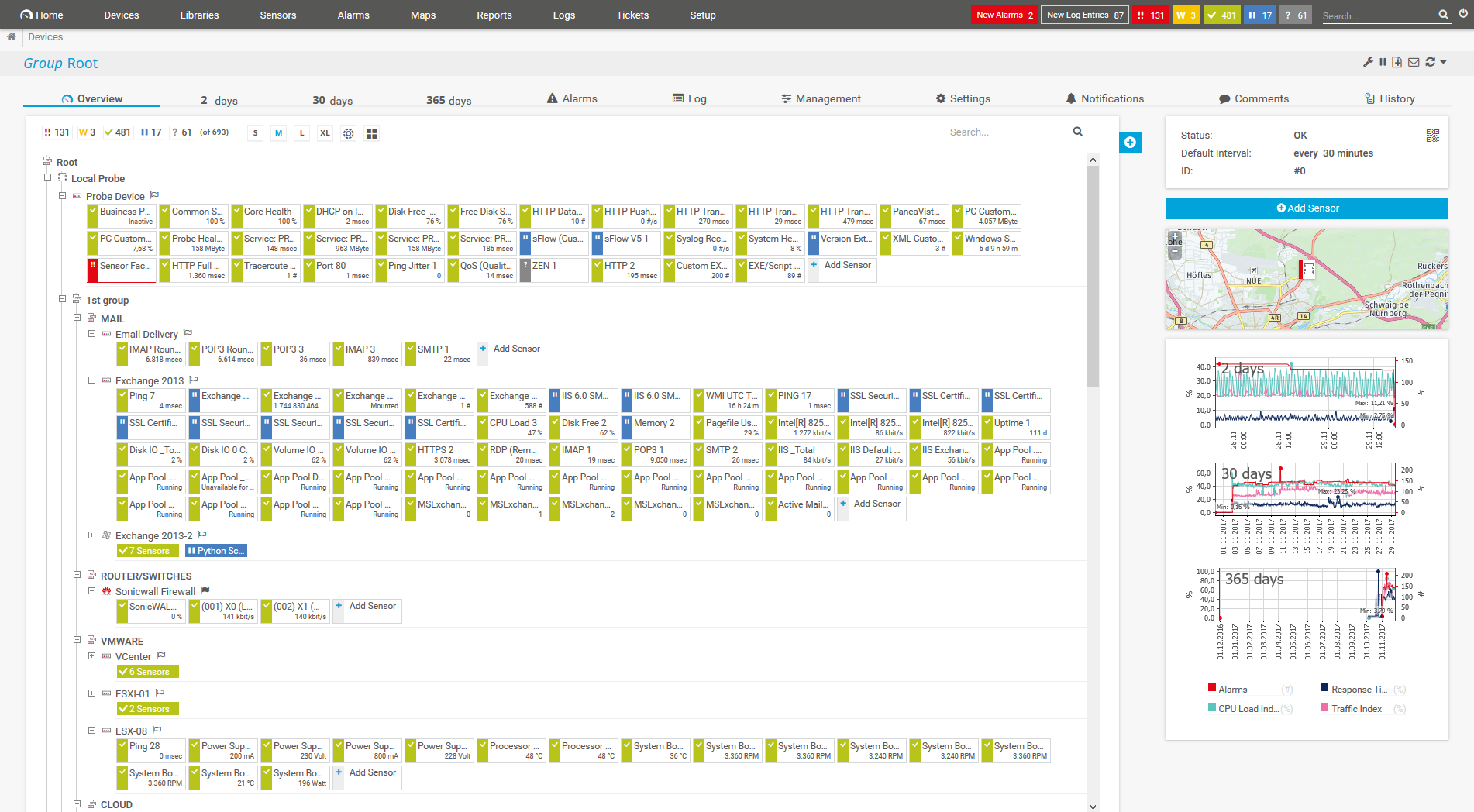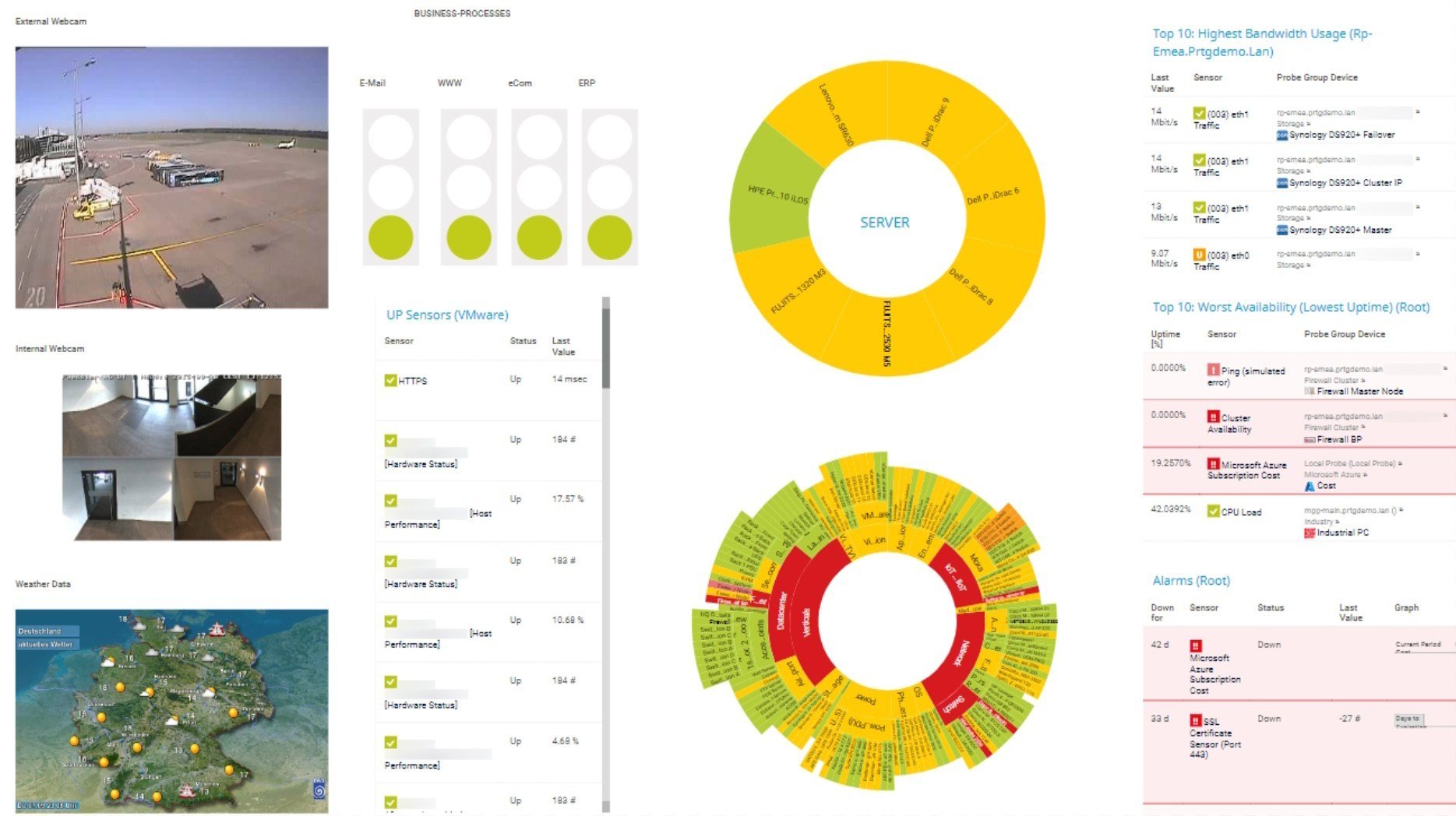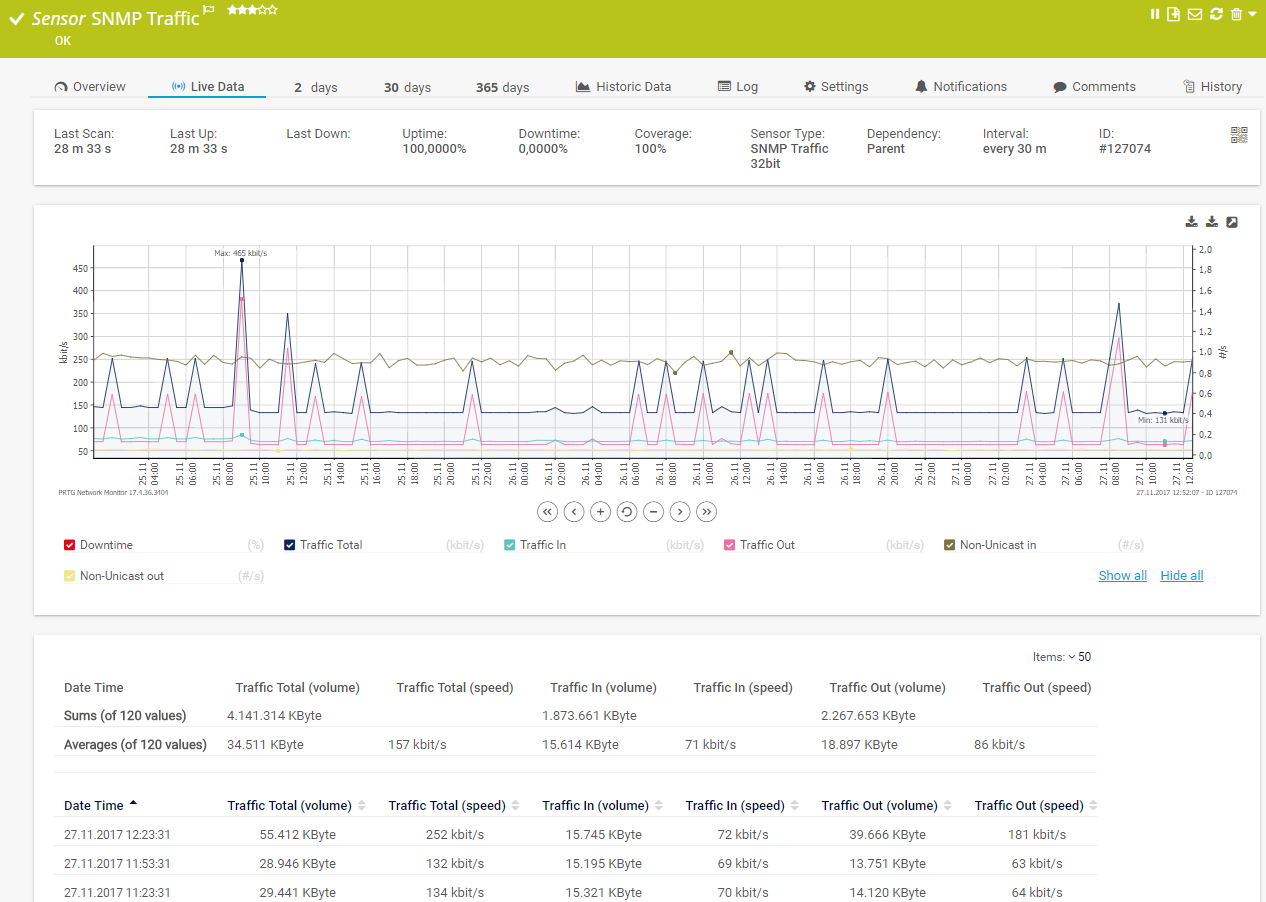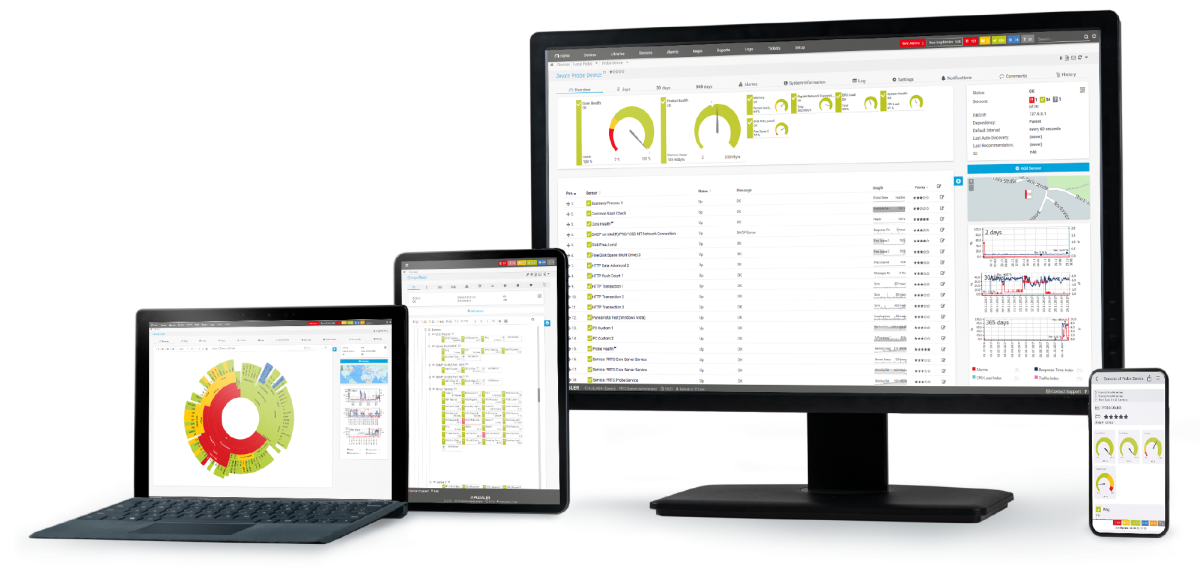Custom alerts and data visualization let you quickly identify and prevent VoIP quality and reliability issues.
Ensure seamless communication within your organization through robust VoIP monitoring. Our VoIP monitoring tool provides comprehensive insights and real-time data, keeping your VoIP systems at peak performance.
Act quickly to address network instabilities or congestion that can impact VoIP quality. VoIP monitoring with Paessler PRTG identifies network irregularities, allowing immediate troubleshooting to maintain clear, uninterrupted calls.
Efficiently allocate and optimize bandwidth for your VoIP needs. By monitoring traffic patterns and usage, you can adjust resources proactively, ensuring high-quality voice calls without sacrificing other network operations.
Maintain the clarity and reliability of your VoIP communications. Continuous monitoring of jitter, latency, mean opinion scores (MOS), and packet loss helps deliver crystal-clear voice quality, enhancing user experience.
Stay ahead of potential VoIP issues with customizable alerts. Set specific thresholds for network performance indicators, receiving immediate notifications to prevent any disruption in voice communications.
Diagnose network issues by continuously tracking call quality metrics. Show Quality of Service, round trip time, network traffic, and other key performance metrics in real time. Visualize monitoring data in clear graphs and dashboards to identify problems more easily. Gain the overview you need to troubleshoot routing, network quality, and related Voice over IP issues.

Device tree view of the complete monitoring setup

Custom PRTG dashboard for keeping an eye on the entire IT infrastructure

Live traffic data graph in PRTG
PRTG comes with more than 250 native sensor types for monitoring your entire on-premises, cloud, and hybrid cloud environment out of the box. Check out some examples below!
See the PRTG Manual for a list of all available sensor types.
Real-time notifications mean faster troubleshooting so that you can act before more serious issues occur.
PRTG is set up in a matter of minutes and can be used on a wide variety of mobile devices.


As a member of the Cisco Partner Program, Paessler is one of the market leaders that enhances the Cisco technology portfolio with products that are proven to easily integrate with Cisco devices.
What does this mean for you?
Partnering with innovative IT vendors, Paessler unleashes synergies to create
new and additional benefits for joined customers.
Combining their tools to a powerful solution for advanced analysis and automation, KnowledgeRiver and Paessler enable IT teams to ensure best performance for their infrastructure and networks.
Integrating monitoring results from PRTG into NetBrain maps makes the foundation for network automation.
With ScriptRunner Paessler integrates a powerful event automation platform into PRTG Network Monitor.
Custom alerts and data visualization let you quickly identify and prevent VoIP quality and reliability issues.
Network Monitoring Software – Version 25.3.110.1313 (August 27, 2025)
Download for Windows and cloud-based version PRTG Hosted Monitor available
English, German, Spanish, French, Portuguese, Dutch, Russian, Japanese, and Simplified Chinese
Network devices, bandwidth, servers, applications, virtual environments, remote systems, IoT, and more
Choose the PRTG Network Monitor subscription that's best for you
PRTG VoIP monitoring is carefully designed for efficiency. It provides detailed insights into call quality with a minimal impact on your network, so you can enjoy the best of both worlds!
Our tool smartly pinpoints whether VoIP problems are coming from inside your network or from outside sources, helping you troubleshoot more effectively.
Yes, you have the ability to delve into historical VoIP data. This feature is a fantastic way to track trends and plan ahead for your network's future needs.
Our system plays well with a variety of VoIP protocols, including SIP, ensuring a comprehensive overview of your VoIP communications.
Our tool is up to the challenge of peak times and grows with your organization. We aim to provide reliable VoIP performance when you need it the most.
Stay ahead of the game with customizable alerts, including email, SMS, and push notifications. You'll always be in the know about your VoIP system's status.
In PRTG, “sensors” are the basic monitoring elements. One sensor usually monitors one measured value in your network, for example the traffic of a switch port, the CPU load of a server, or the free space on a disk drive. On average, you need about 5-10 sensors per device or one sensor per switch port.
Paessler conducted trials in over 600 IT departments worldwide to tune its network monitoring software closer to the needs of sysadmins. The result of the survey: over 95% of the participants would recommend PRTG – or already have.
Paessler PRTG is used by companies of all sizes. Sysadmins love PRTG because it makes their job a whole lot easier.
Bandwidth, servers, virtual environments, websites, VoIP services – PRTG keeps an eye on your entire network.
Everyone has different monitoring needs. That’s why we let you try PRTG for free.